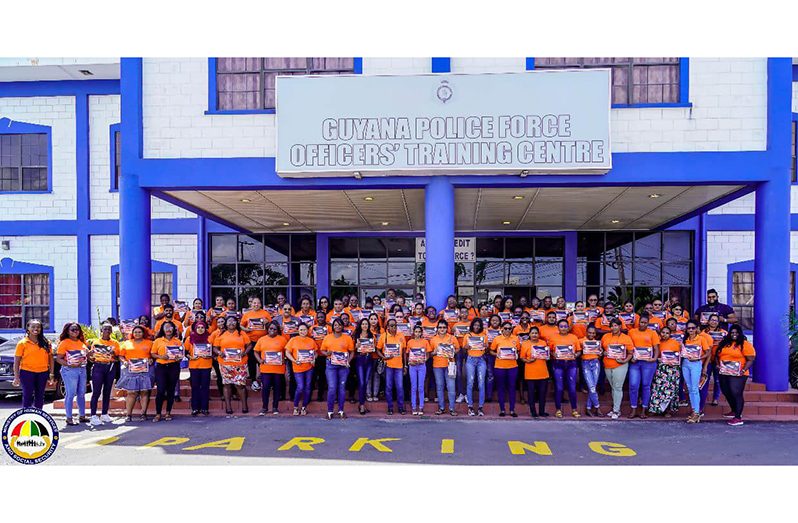AFTER a series of training through the Sexual Offences and Domestic Policy Unit of the Ministry of Human Services and Social Security (MHSSS), over 200 persons have joined the Community Advocates Network (CAN).
The two-day training saw over 150 persons trained from Region Four (Demerara-Mahaica) and Five (Mahaica-Berbice) across two batches at Duke Lodge, Kingston, and the Police Officers’ training centre as well as 58 volunteers from Region Nine (Upper Takatu-Upper Essequibo).
According to a press release, the programme ensured participants’ in-depth knowledge of the roles of CAN in combating gender-based violence, which was presented by Dr. Cona Husbands, the Head of the unit.
A representative of the unit, Kimberly Alberts, related that the CAN initiative has trained numerous individuals countrywide who have signed, sworn, and committed themselves to join the fight against domestic violence.
She said that they are now equipped with the knowledge and skills to assist the MHSSS in eliminating violence from a grassroots level.
“They will return to their respective communities and function as the eyes and ears while acting as the voice of the vulnerable who are experiencing any type of violence.
This initiative is another way of letting victims and survivors of violence who are afraid to speak up, know that there is help available to live a violence-free life,” Alberts said.
The participants received training on the services of the Childcare and Protection Agency and Counter-Trafficking in Persons Unit as well as on conflict resolution and the Sexual Offences Act.

The supervisor of the 914 toll-free hotlines, Rishma Taylor, educated the volunteers on the functions of the hotline as well as the Imatter mobile application.
Allizen Welch-Critchlow, who manages the legal pro bono initiative, gave a detailed presentation on the project that renders legal assistance to 500 victims yearly while Kester Harding presented on the Domestic Violence Act.
National powerlifter, Britny Mack, said that she was taught about domestic violence, child abuse, human trafficking, and more.
She additionally learned how to bring about awareness in her community and implement what she learned from the programme.
“You know in Guyana there are always programmes where they do a lot of talking but no action being done afterwards? With this programme I can see the effort being placed into what they are doing; I can see they are moving forward and making changes we need in the country and I think more persons should come on board…we as a community must work together,” Mack related.
Dr. Aawab Hamid said that he joined the CAN training because he wanted to impact society positively.
He noted that he was surprised at the number of doors the training opened in his mind for him.
“There were things I thought I knew, but it opened different perspectives and allowed me to see how subtle things are and how sometimes we think we know certain things but this showed me how to identify things on a much broader level, empathize more and empower me with the resources to help people and who to reach out to,” Dr. Hamid said.
He added: “I think after this training is done, I am more empowered to help society and imply things that vulnerable people may need so overall this is something I wish I had done earlier; it’s incredible and I applaud the Ministry for conducting this training.”



.jpg)








